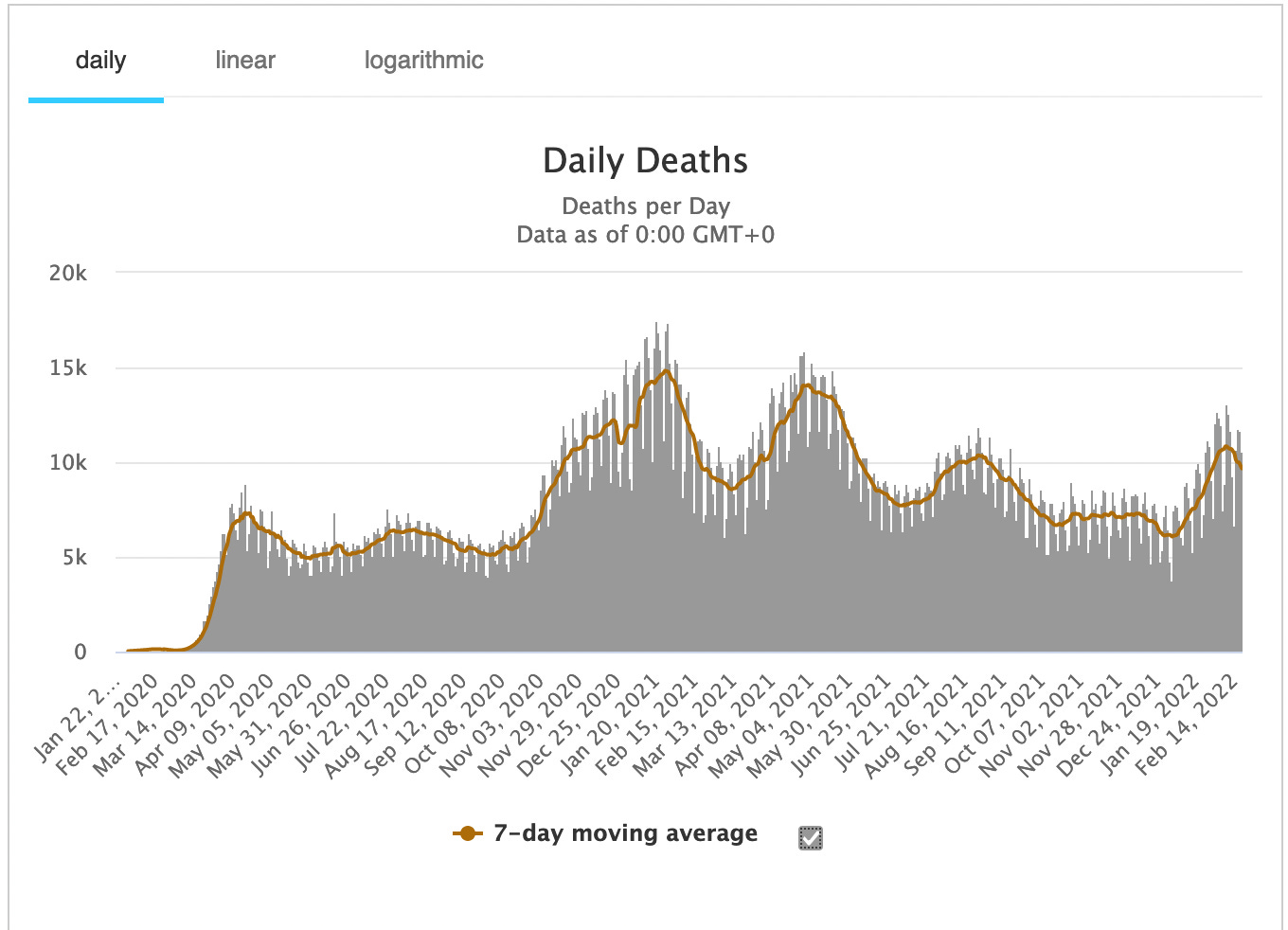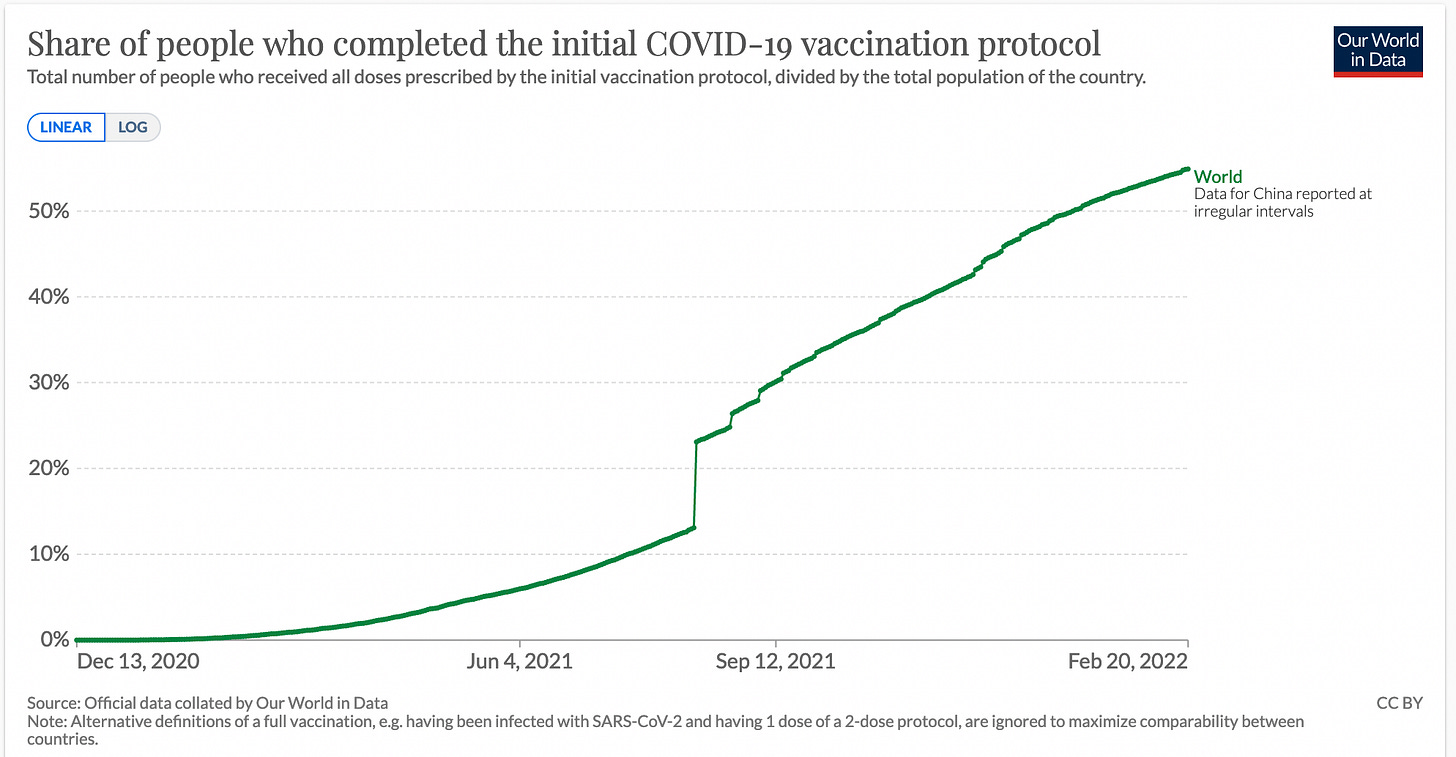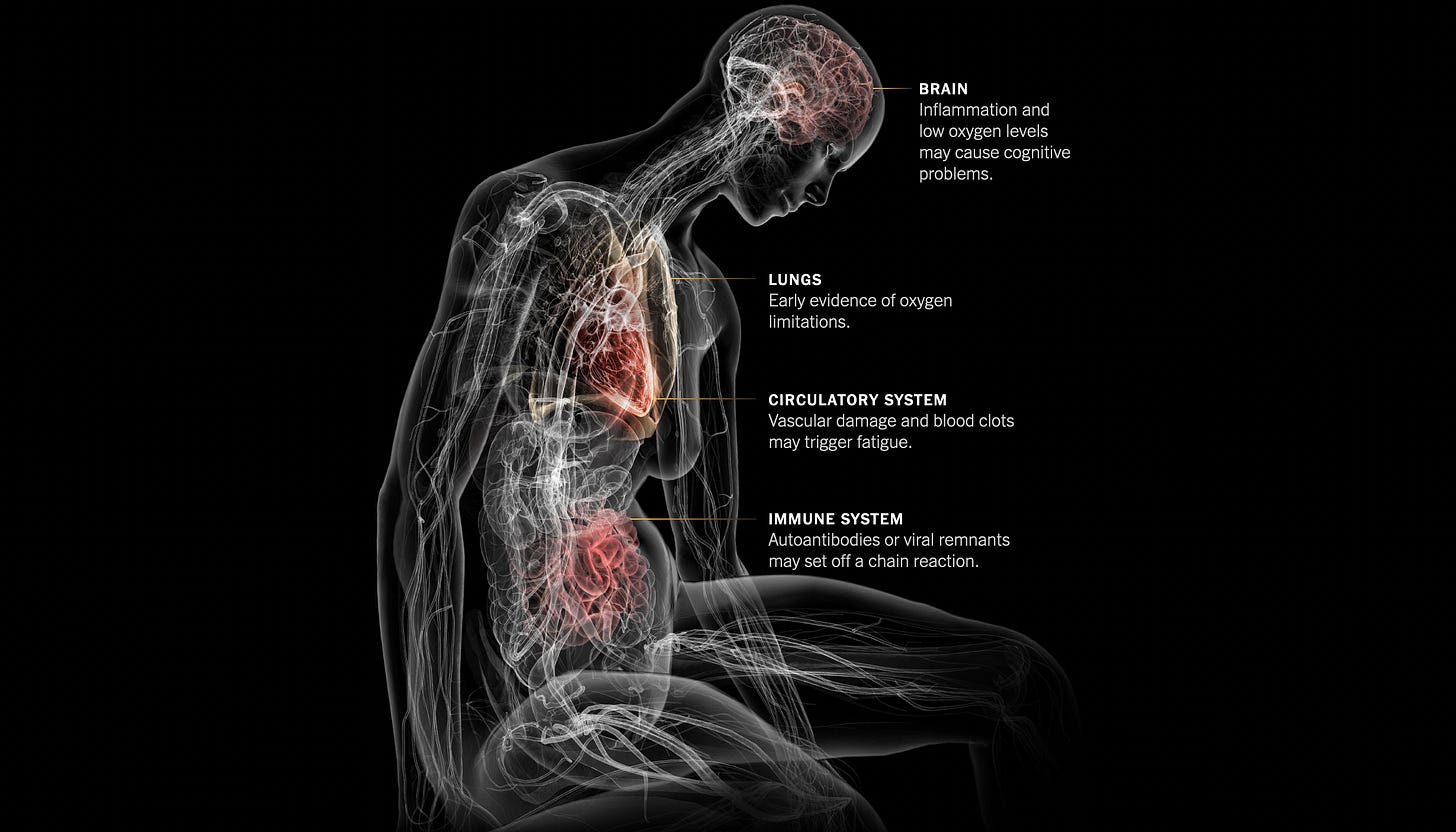Vaccines may offer long-term protection from acute infection, but “long Covid” remains a risk. And almost half the planet remains unjabbed.
(Originally published Feb. 22 in “What in the World“) In a rare moment of lucidity, U.S. President Joe Biden this week extended the national pandemic emergency, noting:
The Covid-19 pandemic continues to cause significant risk to the public health and safety of the nation… More than 900,000 people in this nation have perished from the disease, and it is essential to continue to combat and respond to Covid-19 with the full capacity and capability of the federal government.
This prudent move contravenes the prevailing direction of government policy in 49 of 50 U.S. states and in other countries, particularly the United Kingdom, which is to declare victory against Covid and retreat.

The latest news from science won’t likely help. In what is genuinely fantastic news, new studies are confirming that inoculation with mRNA vaccines developed by Pfizer/BioNTech and Moderna—while they may not completely block infection—do appear to induce a long-lasting immune response that may provide long-term protection from severe or fatal illness from Omicron of newer variants. How? The vaccines appear to stimulate the creation of T-cells and B-cells that recognize Covid in its many guises and can retain that recognition for years, remaining ever-ready to spring into action if Covid attempts to sneak back in.
If these findings hold up as new strains emerge, this significantly lowers the danger Covid poses to populations where mRNA vaccines are available and vaccination rates high. Perhaps most significantly, it means we may not need a fourth booster to remain protected against Omicron and its progeny.
It doesn’t, unfortunately, mean the fight against Covid is over.
Almost half of the planet—3.6 billion people—remains unvaccinated. Many of those people are in countries with relatively high vaccination rates that are now lowering their guard. Almost 30% of Britons, for example, remain unvaccinated. And many of those that have been vaccinated didn’t receive mRNA vaccines, but instead vaccines made by Johnson & Johnson, AstraZeneca or one of China’s vaccines, Sinopharm and Sinovac.

Even those vaccinated appear to remain vulnerable to “long Covid,” even if they don’t fall ill. Research so far suggests that, while vaccines may cut the risk of developing long Covid in half, they don’t eliminate it:
Zaza Soriano, 32, a software engineer from Millersville, Md., who works for a NASA subcontractor, got Covid right before Christmas despite being fully vaccinated and boosted, and since then, her blood pressure has remained very high with the bottom number, or diastolic pressure when the heart rests between beats sometimes as high as 110 when it should be lower than 80. She also has brain fog and her joints ache.
Long Covid is no joke: long after patients recover, the virus remains embedded in the brain and other organs, causing chronic and debilitating symptoms. Long Covid has become so common now among Americans that some experts fear the nation may face a cardiovascular crisis.
The T-cell/B-cell news is thus potentially dangerous: it will likely prompt even more people in nations with high vaccination rates to ignore social distancing measures and mask recommendations, thereby perpetuating Covid’s transmission rates and increase the incidence of long Covid.
We still need to curb Covid’s transmission in order to buy more time to vaccinate more people and pull infection rates back under control.
